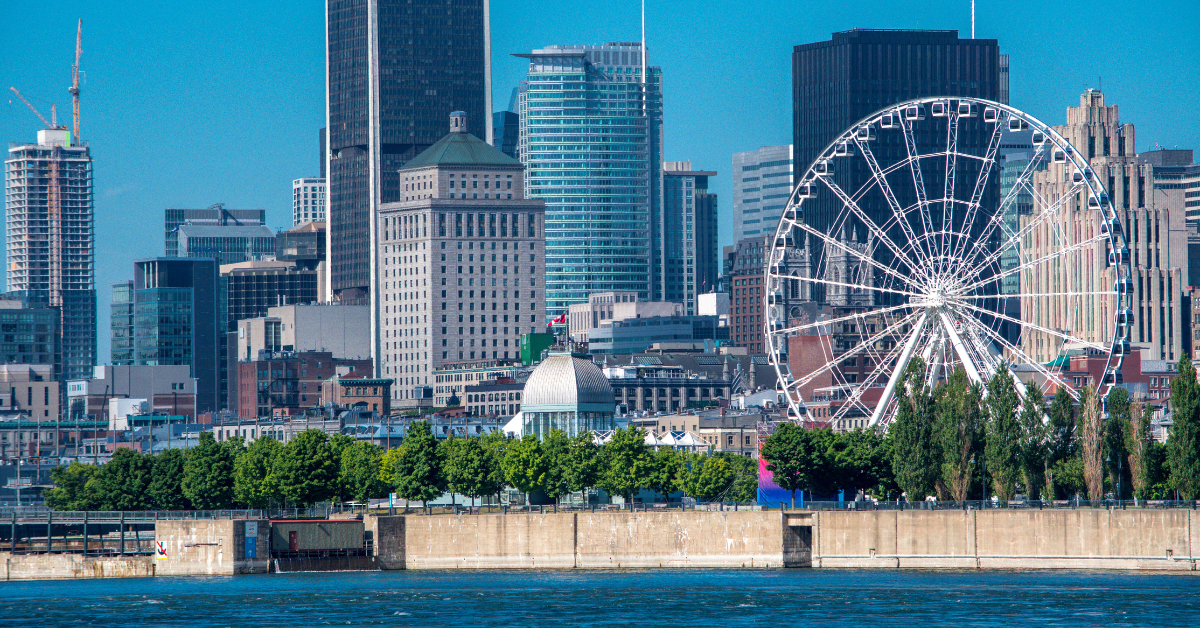In Japanese, Montreal is usually written in Katakana, but historically it has also been represented with the kanji “門土里留.” This representation carries symbolic meaning beyond phonetics. This article explores not only the origin of the kanji but also the cultural and sporting images that Japanese people associate with Montreal.
The Origin of the Representation “門土里留”
The kanji representation “門土里留” (Montorīru) is a phonetic transcription, where characters are chosen for their similar sounds.
| Sound | Kanji | Nuance of Meaning |
|---|---|---|
| Mon | 門 | Symbolizes an entrance or openness |
| To | 土 | Represents earth or stability |
| Ri | 里 | Conveys community or familiarity |
| Ōru | 留 | Implies staying, a base or hub |
This is more than a direct transcription—it can also be interpreted symbolically as “a gateway rooted in the land” or “a place where culture remains”. While such expressions appear in historical translations or literary works, they are rarely used in modern Japanese.
How Montreal Is Written in Modern Japanese
Today, Montreal is almost exclusively written in Katakana as モントリオール. International city names are generally expressed in Katakana, and kanji renderings are rare.
| Writing | Context of Use | Prevalence Today |
|---|---|---|
| モントリオール | Everyday life, tourism guides, news media | Very common |
| 門土里留 | Literary works, old translations, academic references | Rare |
Thus, the kanji form holds value mainly for understanding historical and cultural contexts. In modern times, it functions more as a symbolic or stylistic expression.
How Japanese People View Montreal
A City with French Influence
Montreal belongs to the French-speaking region, and Japanese people often describe it as “a city in North America with a European atmosphere”. The streets and food culture strongly reflect French heritage.
A City of Arts and Music
Montreal is home to one of the world’s largest jazz festivals as well as numerous museums and theaters, earning it the image of “a city of art” among Japanese audiences.
Harmony of Nature and the City
The famous Mount Royal and the city’s seasonal landscapes leave a strong impression on Japanese visitors, creating the image of “a modern city coexisting with nature”.
A Symbol of Multiculturalism
Montreal is known for its immigrant communities, and Japanese people often view it as a diverse and inclusive international city.
Montreal as a Sports City
The Montreal Olympics
The 1976 Olympic Games left a strong mark in Japan, particularly in gymnastics and judo. The name Montreal is still associated with that historic event in Japanese memory.
Ice Hockey Culture
Montreal is one of the centers of Canadian ice hockey. The Montreal Canadiens, a legendary team, are well known even among Japanese sports fans. The fast-paced, physical matches are often described as a unique sports culture rarely experienced in Japan.
Tennis and Formula 1
Montreal also hosts international tennis tournaments and the Formula 1 Canadian Grand Prix, reinforcing its image as a global sports hub.
Montreal’s Food Culture and Japanese Impressions
Montreal’s food scene combines French cuisine with Canadian traditions and immigrant influences.
| Food Culture | Characteristics | Japanese Impression |
|---|---|---|
| Poutine | Fries topped with gravy and cheese curds | A casual taste that feels uniquely Canadian |
| Bagels | Montreal-style bagels, smaller and sweeter than New York’s | Simple and familiar |
| French Cuisine | Numerous authentic French restaurants due to cultural heritage | A special place to enjoy Europe in North America |
For Japanese people, Montreal represents “a city where diverse food cultures can be experienced in one place”.
Popular Tourist Spots Among Japanese Travelers
| Tourist Spot | Features | Reason for Popularity Among Japanese |
|---|---|---|
| Notre-Dame Basilica | Stunning Gothic architecture and stained glass | Magnificent and photogenic |
| Mount Royal Park | Scenic viewpoint overlooking the city | Experience harmony between city and nature |
| Old Montreal (Vieux-Montréal) | Cobblestone streets and historic buildings | Feel a European-style atmosphere in North America |
Conclusion
The kanji representation “門土里留” is rarely used today, but it retains historical and symbolic significance. For Japanese people, Montreal is seen as a city of arts and culture, a place where nature and urban life coexist, and a hub of international sports and gastronomy. The memories of the Olympics and the image of hockey culture, in particular, remain vivid among Japanese fans.
In this sense, Montreal is more than just a name—it is a dynamic international city where culture, nature, sports, and cuisine come together, leaving a consistently positive impression on Japanese people.






